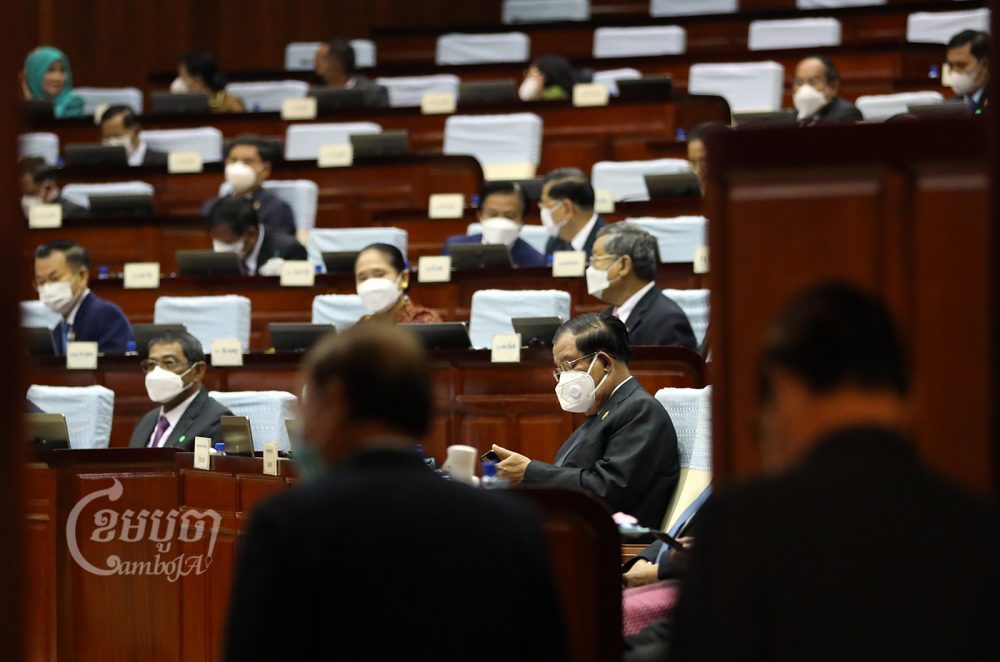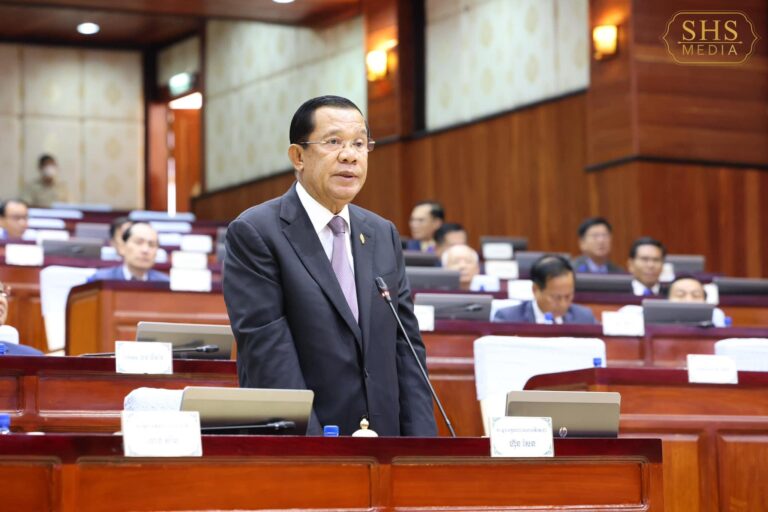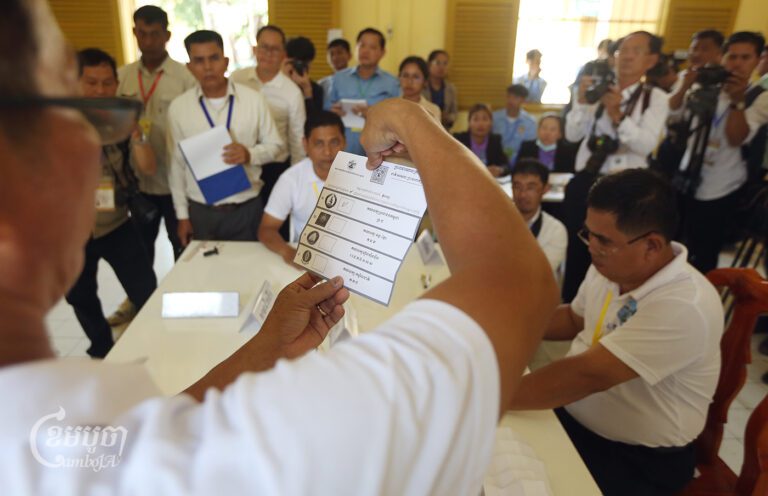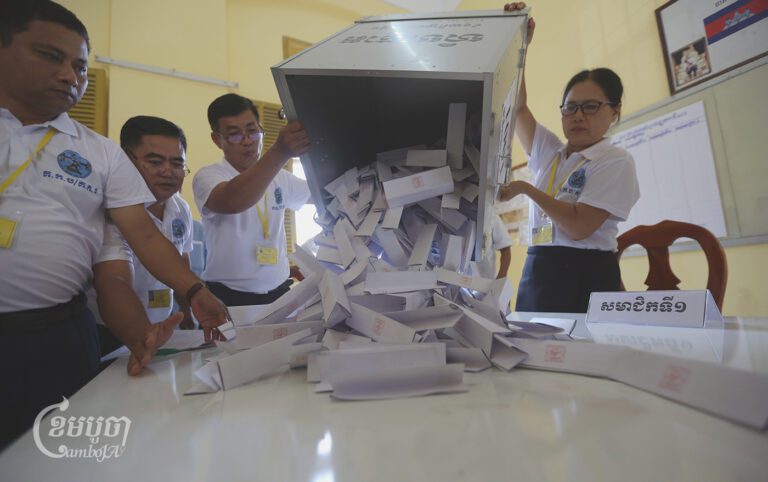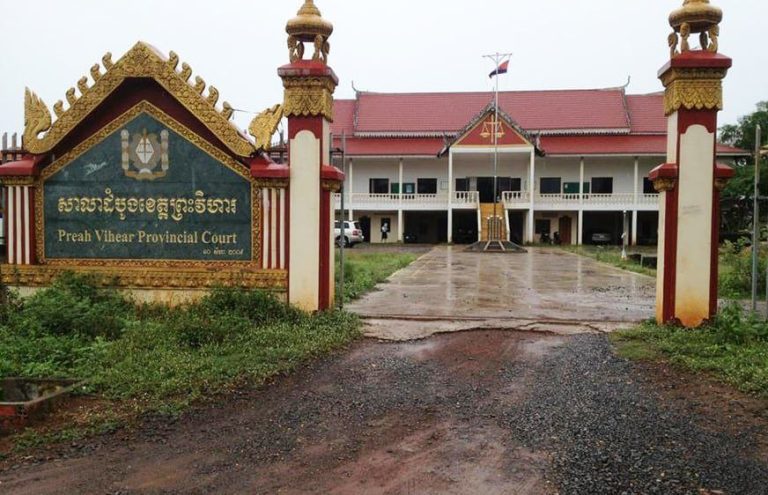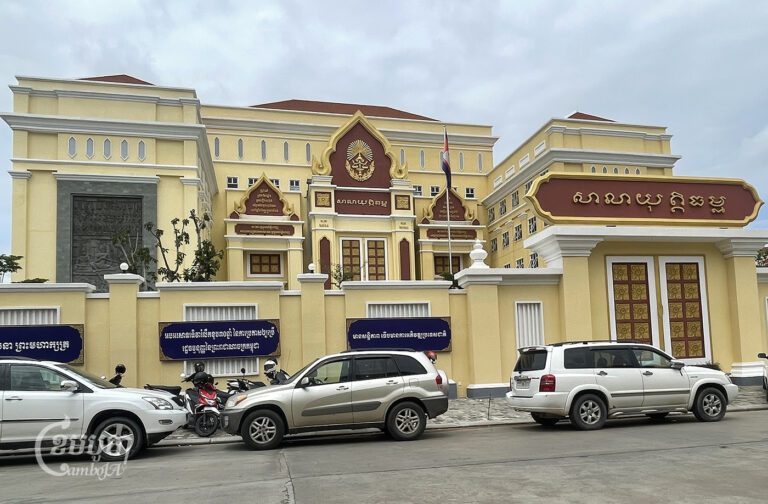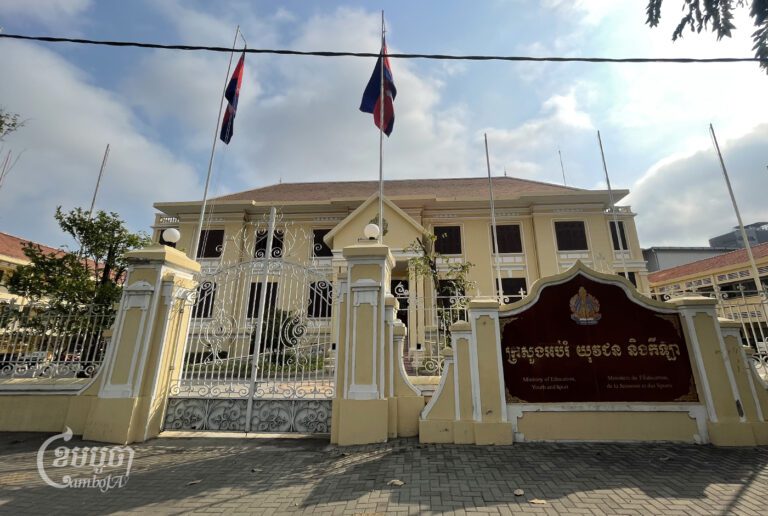In the more than four years that the ruling Cambodian People’s Party has controlled a one-party National Assembly, lawmakers summoned a government official for questioning just once, according to a report by the independent election monitor Comfrel.
The report issued Thursday reviewed all eight plenary sessions held between September 2018 to August 2022. During that time, the National Assembly approved 125 agendas, but almost never summoned government officials. The sole exception was when lawmakers called in the Minister of Justice.
Article 96 of the Constitution outlines how lawmakers can question government officials, which Comfrel noted is a key means by which lawmakers can understand a range of issues and determine the need for new laws.
“Some draft laws were quickly approved without any public discussion,” the report added. “The issues raised by opposition political parties, NGOs, and unions were not taken into account. The [National Assembly] does not care about the people’s suggestion as stated in Article 35.”
Comfrel hosted a workshop in Phnom Penh Thursday attended by members of civil society, unions, and opposition parties, though no government representatives or members of the CPP attended.
Speaking at the workshop, Korn Savang, Comfrel monitoring and advocacy program coordinator, said Comfrel would submit a report to the National Assembly when the full report is finalized in January.
“We have identified a number of issues, such as land disputes, social injustices and workers’ issues that were not addressed, which is one of the reasons we see a lack of multi-party mechanisms,” he said.
President of local rights group Adhoc, Ny Sokha, said that proper elections are critical to ensuring a multi-party democracy. “The important thing is to promote a free, fair and transparent election process,” he said.
CPP lawmaker Chheang Vun said he was meeting with his constituents in Battambang regarding a land dispute, but denied the findings of the report, saying that the National Assembly had been performing better than ever.
“The Comfrel report was made under a crazy assessment,” he said. “I would like to say that no member of parliament in other mandates has done a better job than this mandate.”
Vun added that the National Assembly had summoned several government officials for questioning during smaller commission sessions, which are held in private.
“It was not necessary to debate in the plenary session because it had already been discussed and resolved in the commission,” he said. “We did not need to discuss in the plenary session, the big issues were discussed in the commission and all the news was posted on Facebook.”
After the Supreme Court dissolved the popular opposition Cambodia National Rescue Party in November 2017, the party’s 55 seats were divided among minor parties. Without a credible opposition, the CPP went on to win all 125 parliamentary seats in the 2018 national election.
Following the party’s dissolution, 118 opposition officials were banned from politics for five years.
Pa Chanroeun, president of the Cambodian Institute for Democracy, said that in the one-party parliament, many issues including land disputes, crop prices, and workers’ issues had not been raised by lawmakers.
“The lack of a multi-party parliamentary mechanism and competition is the reason that led to the slowdown in Cambodia’s democratic process,” he said. “This report reflects that a multi-party parliament is better for the people than the current one-party parliament.”
Chanroeun noted that lawmakers could not fulfill their role independently due to political pressure.
“In Cambodia, the political pressure is greater than anything,” he said.


